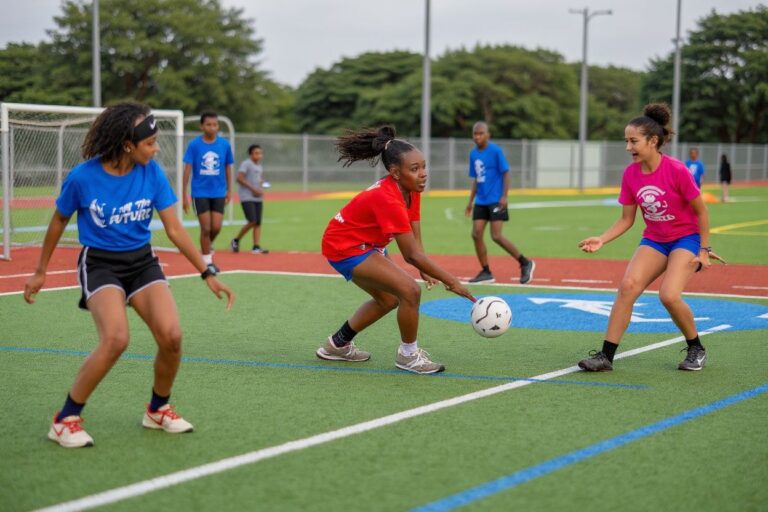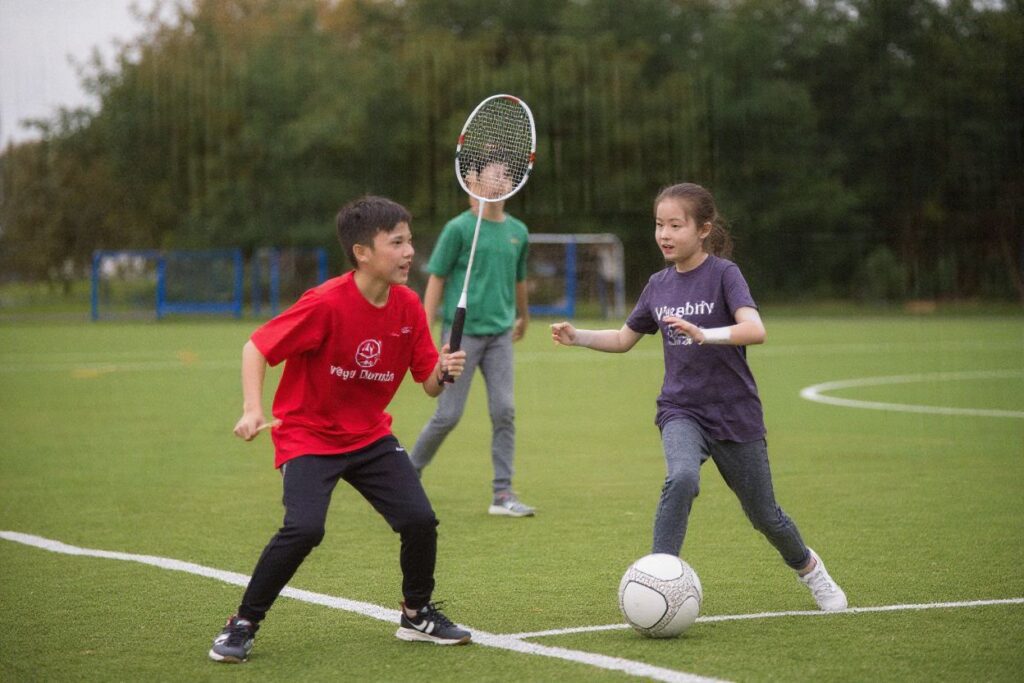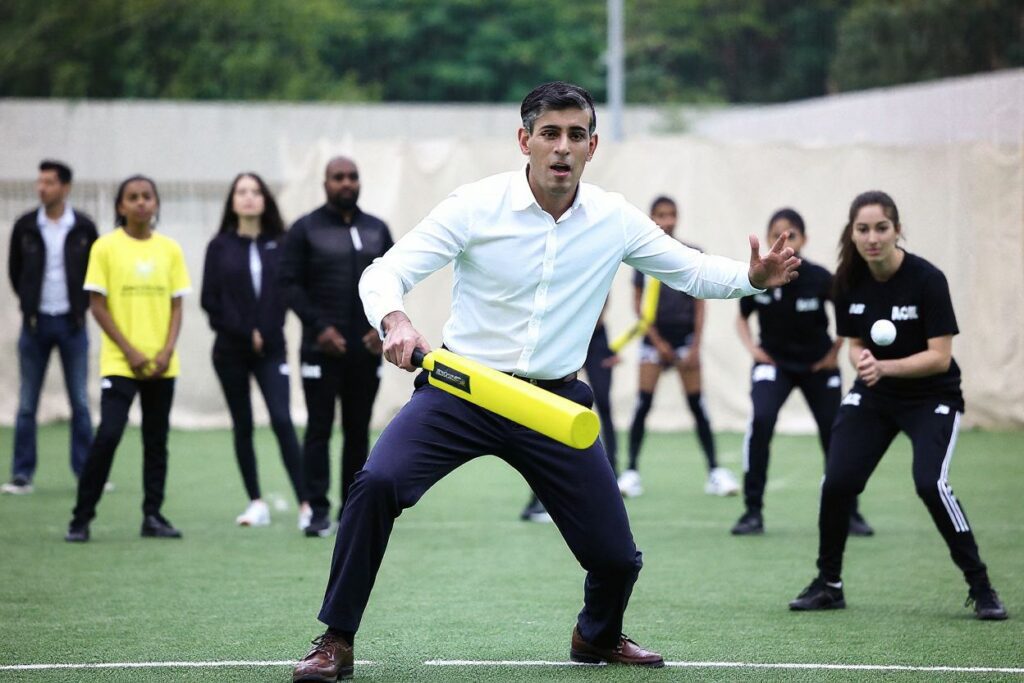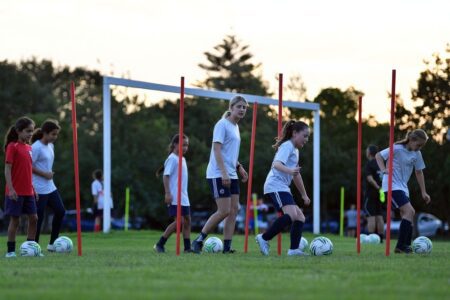
In many Asian cultures, academic excellence is often regarded as the pinnacle of success, with parents dedicating significant resources to ensure their children excel in school.
While this emphasis on education is commendable, it sometimes overshadows other crucial aspects of a child’s development, such as physical activity and sports.
However, the importance of sports in schools cannot be overstated.
Sports offer a wide range of benefits that extend beyond physical health, contributing to a child’s overall growth, character development, and academic success.
Though sports have long been a staple in the curriculum of reputable international schools, parents often overlook their importance in favour of more traditional academic pursuits. Sports are sometimes viewed as mere recreational activities with little practical value.
Why? In Asia, sports programmes are mainly funded by the government, and athletes are seen as government employees with stable but average pay. This may not appeal to families who view sports as a non-academic “distraction.”
They see sports as a risky investment with uncertain returns, whereas education is a more reliable way to secure stable, well-paying jobs.
Today, this perspective is increasingly being challenged. Here are six reasons why playing sports in schools is beneficial and why Asian parents should take notice:
 Introducing sports at a young age encourages students to adopt a healthy lifestyle, reducing the risk of developing chronic diseases later in life.
Introducing sports at a young age encourages students to adopt a healthy lifestyle, reducing the risk of developing chronic diseases later in life.
1. Improved physical health and well-being
The most obvious benefit of playing sports is the improvement in physical health. Regular physical activity is essential for maintaining a healthy weight, building strong bones and muscles, and reducing the risk of chronic diseases such as obesity, diabetes, and heart disease.
For children, the importance of developing healthy habits early in life cannot be overstated.
In a world where sedentary lifestyles are becoming increasingly common, especially with the rise of technology and screen time, incorporating sports into a child’s daily routine can help counteract the negative effects of inactivity.
Playing sports encourages children to move, stretch, and challenge their bodies, improving overall fitness. Plus, the physical activity involved in sports helps to improve cardiovascular health, boost the immune system, and increase energy levels.
For Asian parents who may prioritise academic success, it’s important to understand that a healthy body supports a healthy mind. When children are physically active, they are more likely to have the energy and focus needed to excel in their studies. Plus, the discipline and perseverance required in sports can translate to other areas of life, including academics.
2. Better mental and emotional well-being
Participation in sports has been shown to reduce stress, anxiety, and symptoms of depression. The endorphins released during physical activity act as natural mood enhancers, helping children feel happier and more relaxed.
A new Australian study reveals that playing sports from an early age can lead to better long-term mental health. According to the research, children who regularly participate in sports are more likely to develop resilience, emotional regulation, and coping skills that serve them well throughout their lives.
These attributes are particularly important in today’s fast-paced, high-pressure environments, where children are often expected to juggle multiple responsibilities and excel in various areas.
Moreover, sports can help children build self-esteem and confidence. As they set and achieve goals, whether scoring a goal in soccer or improving their time in a swim meet, children learn to trust in their abilities. This sense of accomplishment creates a positive self-image and encourages them to take on new challenges, both on and off the field.
 Students who participate in sports often perform better academically, as the discipline and time management skills developed on the field translate into their studies.
Students who participate in sports often perform better academically, as the discipline and time management skills developed on the field translate into their studies.
3. Improved academic performance
Contrary to the belief that sports might detract from academic pursuits, research has shown that physical activity can enhance cognitive function and improve academic performance.
Studies have demonstrated that regular exercise boosts blood flow to the brain and fosters the creation of new neural connections, leading to improved concentration, enhanced memory, increased creativity, and better problem-solving abilities.
For instance, a study by the University of Illinois found that students who were active in sports performed better on standardised tests and had higher grades than their less active peers.
“We have found a strong relationship between academic achievement and fitness scores,” says Darla Castelli, a professor of kinesiology whose area of expertise is effective physical education practices. “Those who scored well in academics also did well in physical fitness.
“We’re not suggesting that if we run more laps, it will make us smarter,” she said, “but there does appear to be a correlation.”
Alongside cognitive benefits, sports also teach valuable time management and organisational skills. Student-athletes must learn to balance their academic responsibilities with their sports commitments, often involving setting priorities, creating schedules, and staying disciplined.
These skills are transferable to other areas of life and can contribute to long-term success in academic and professional endeavours.
4. Social skills and teamwork
One of the most important lessons that sports teach is the value of teamwork. In team sports, children learn how to communicate effectively, work with others, and strive towards a common goal.
These experiences help them develop strong interpersonal skills, which are key to building relationships and functioning well in group settings.
Through sports, children also learn how to handle competition and deal with winning and losing gracefully. The ability to accept defeat, learn from mistakes, and persevere in the face of challenges is a critical life skill that will serve them well in all aspects of life.
What’s more, the camaraderie and friendships formed through sports can provide a strong support network that contributes to a child’s social and emotional well-being.
For Asian parents concerned about their children’s social development, sports offer an excellent opportunity to interact with peers, build friendships, and learn valuable social skills in a structured and supportive environment.
These interactions can help children become more empathetic, understanding, and cooperative.
 Team sports require students to work together toward a common goal, emphasising the importance of cooperation and collaboration.
Team sports require students to work together toward a common goal, emphasising the importance of cooperation and collaboration.
5. Character building and life skills
Beyond the physical, mental, and social benefits, sports play a crucial role in building character.
Participating in sports teaches children important values such as discipline, responsibility, perseverance, and sportsmanship. For example, discipline is required to attend regular practices, follow the rules of the game, and work towards improving one’s skills.
Responsibility is learned through the commitment to one’s team and the understanding that each player’s actions affect the group. Perseverance is cultivated as children face challenges and setbacks, learning to push through difficulties and keep striving for their goals.
Sports also instil a sense of fair play and respect for others as children learn to compete with integrity and honour the rules of the game. These lessons in sportsmanship are invaluable in helping children develop a strong moral compass and a sense of ethics that will guide their actions throughout life.
6. Long-term benefits and lifelong habits
The benefits of playing sports extend far beyond childhood.
The habits and skills developed through sports can lead to a lifetime of physical activity, health, and well-being. Children who grow up playing sports are more likely to continue being active as adults, reducing their risk of chronic diseases and improving their quality of life.
Plus, the lessons learned on the sports field, such as goal-setting, resilience, and teamwork, can have a lasting impact on a child’s future success. Whether in their careers, relationships, or personal pursuits, the skills and values gained through sports will continue to serve them well throughout their lives.
 Sports offer students leadership opportunities, like being a team captain or leading drills, helping them develop the skills to motivate and guide others in both personal and professional settings.
Sports offer students leadership opportunities, like being a team captain or leading drills, helping them develop the skills to motivate and guide others in both personal and professional settings.
Overcoming common misconceptions
Despite the many benefits, some Asian parents may still be hesitant to encourage their children to participate in sports. Common misconceptions include the belief that sports are a distraction from academics, that they are only for those who excel athletically, or that they may lead to injuries that could jeopardise a child’s academic future.
However, these concerns are often unfounded. Schools across Asia are increasingly adopting comprehensive sports programmes that prioritise safety and inclusivity, ensuring that all students, regardless of their athletic ability, can participate and benefit.
What’s more, the discipline, resilience, and time management skills developed through sports can enhance academic performance, as previously discussed.









